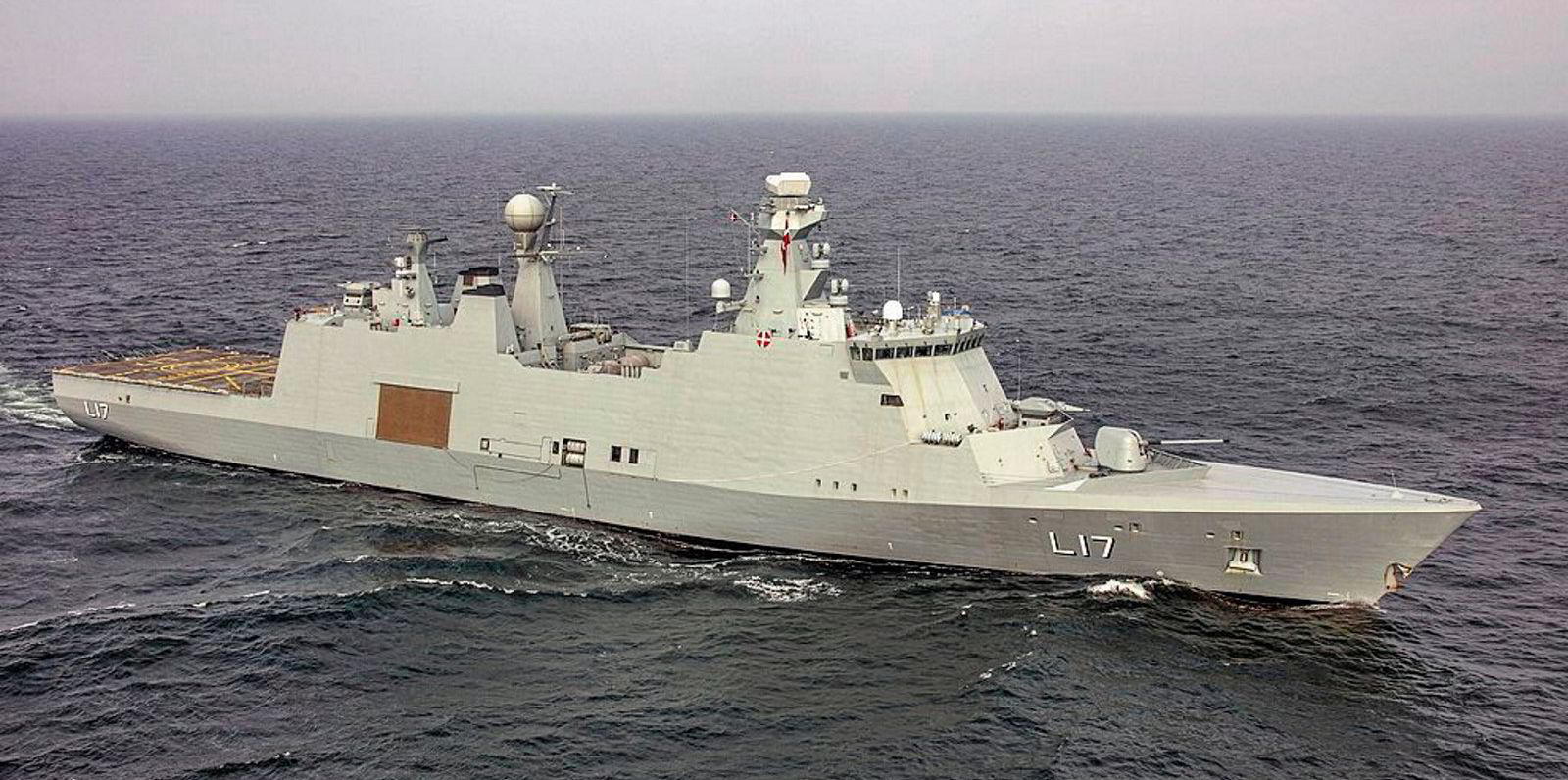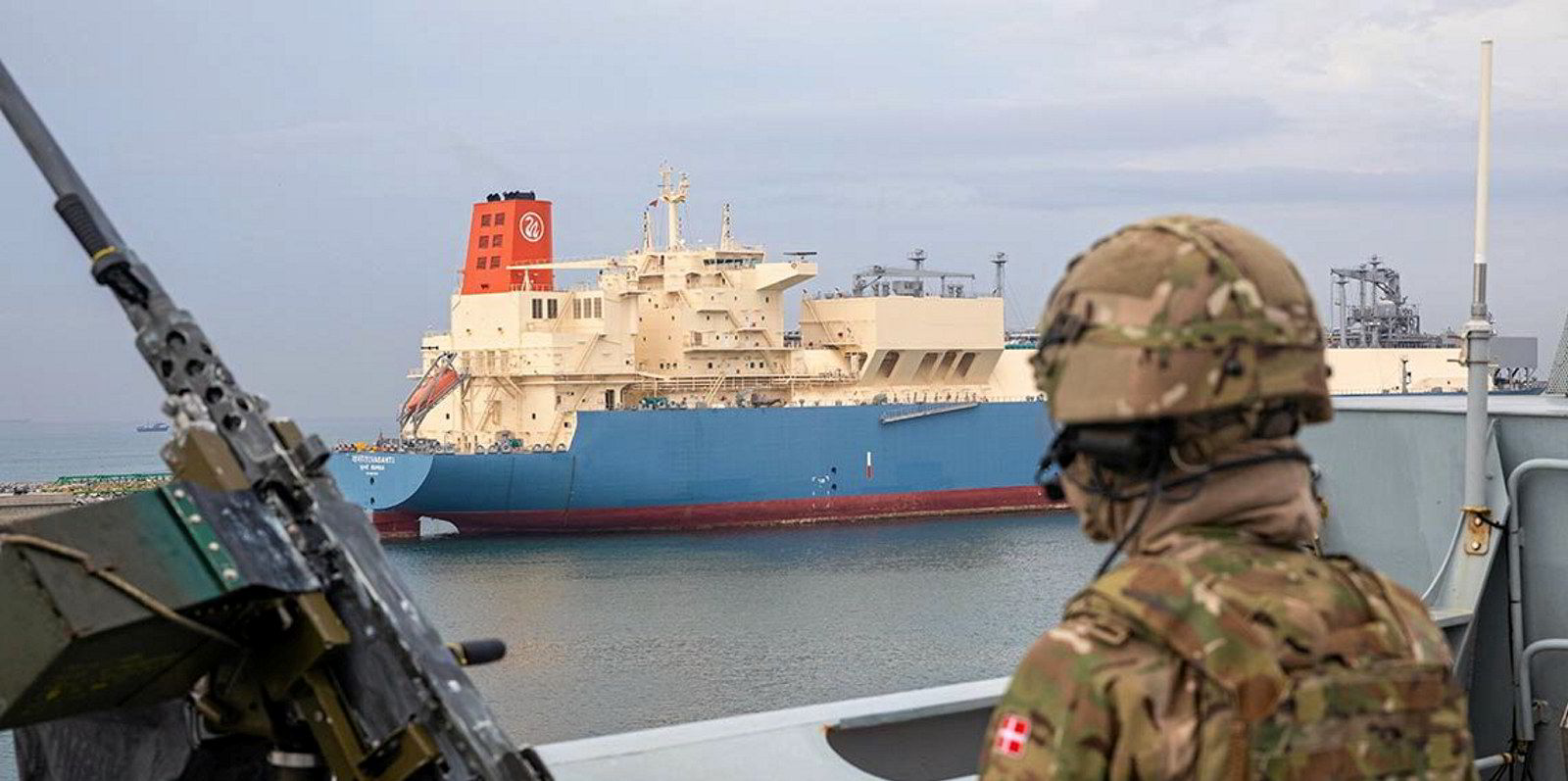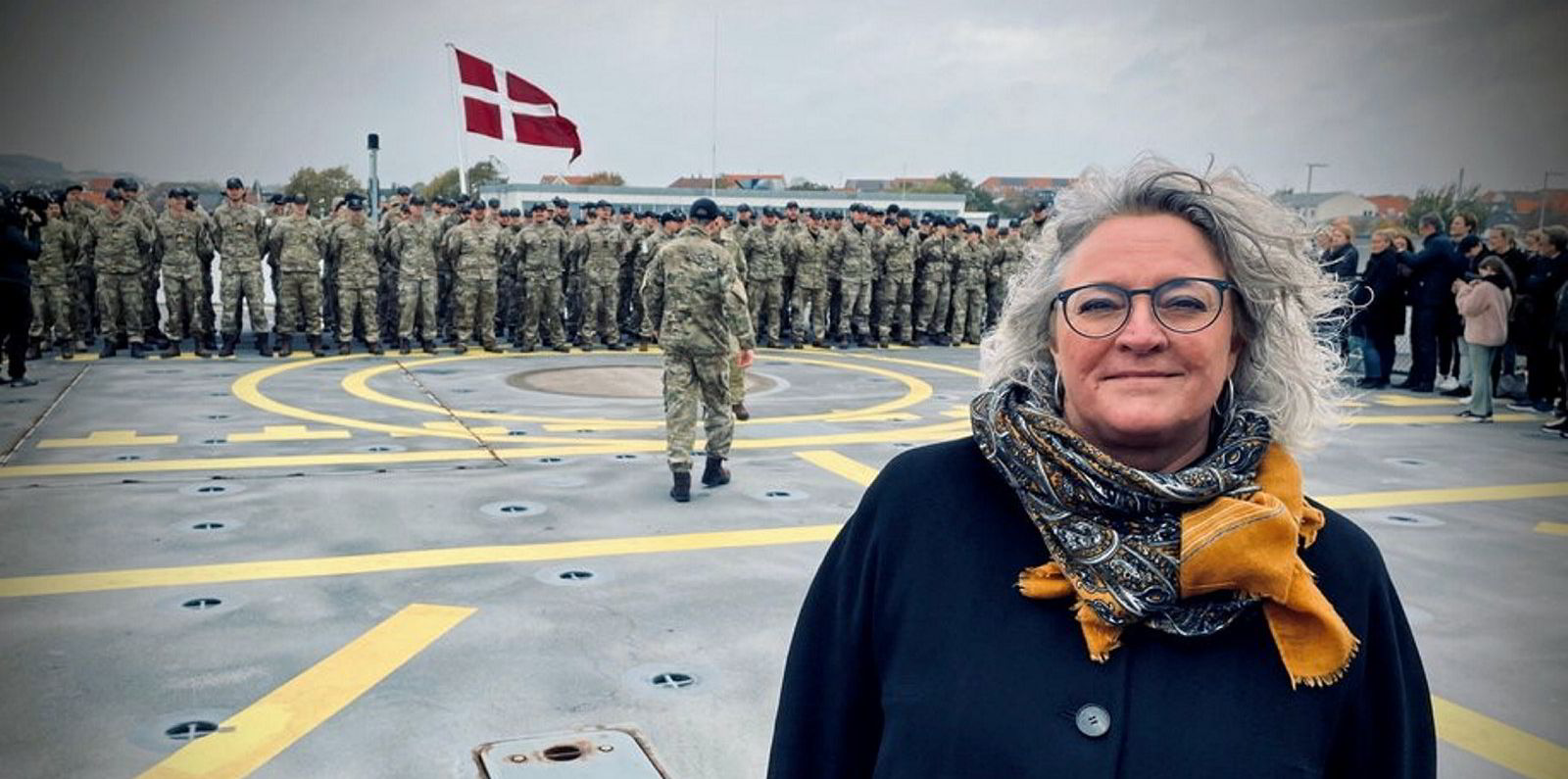Denmark’s withdrawal of a naval vessel from the Gulf of Guinea is unlikely to change the risk profile for shipowners, says a top security consultancy.
The Danish government recently announced that it was calling home the frigate on an anti-piracy mission, over ongoing tensions with Russia over Ukraine.
The ship, which has been operating in waters off the coast of West Africa since October 2021, will be added to the forces made available to NATO.
“Whilst the vessel has effectively deterred and disrupted piracy operations, a lack of regional cooperation limited its operational footprint and therefore impact,” said Casper Goldman, analyst at Dryad Global.
“International naval vessels are often operating under a sovereign mandate and the lack of effective coordination significantly hampers the operational effectiveness of such vessels.
“Ultimately, following its re-stationing the risk profile in the Gulf of Guinea is not likely to alter significantly, though the lack of offshore assets will mean there is less reactive elements able to respond to acts of piracy beyond territorial waters.”
Shipowner’s association Danish Shipping described the naval vessel’s mission as a “success”.
“We fully understand that the situation in Ukraine and Russia requires full focus and that Danish military capabilities must be able to be moved around at short notice,” said Danish Shipping chief executive Anne H Steffensen.

“We regret that the frigate is being withdrawn before due time, as its presence has, to put it briefly, been a huge success.”
Danish Shipping said that while the frigate has patrolled in the Gulf of Guinea, no Danish flagged, or Danish operated ship has been subjected to a pirate attack. This is in contrast to same period the previous year when three Danish operated ships were attacked by pirates.
“Pirate attacks in the Gulf of Guinea most often occur during the months from late autumn to early spring. This is the time where the weather in the area is most calm and therefore pirates can more easily operate in their small boats far out at sea,” the shipowner’s association said.
“Therefore, Danish Shipping is also pleased that the government is not opposed to resume a similar effort at a later date.”
Dryad Global assesses the threat to seafarers in the region as still remaining, with no change in piratical capability or intent in the past year.
“Pirate action groups retain both the capability and opportunity to conduct offshore acts of piracy both in terms of the limited effectiveness of the Deep Blue Project and the prevalence of large numbers of opportunistic targets,” Goldman told TradeWinds.
“The true narrative that underpins the precipitous decline in piracy is to be found upstream of the incidents themselves to an environment onshore, that has made it difficult for those involved in sponsoring and financing acts of serious organised crime to operate.”
Goldman said such is the level of political and financial investment in the success of the deep blue project, such individuals are finding it increasingly difficult to occupy the grey space between legitimate and criminal.





